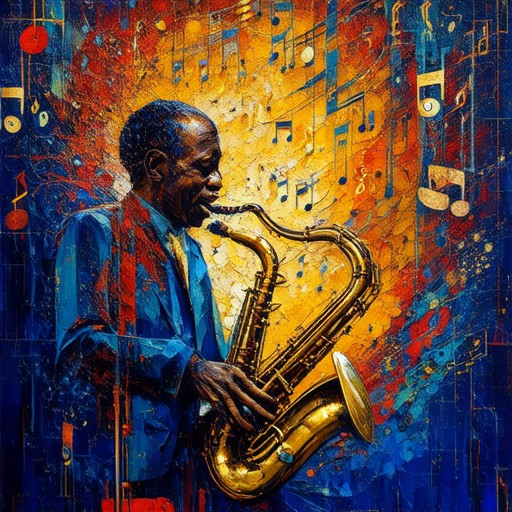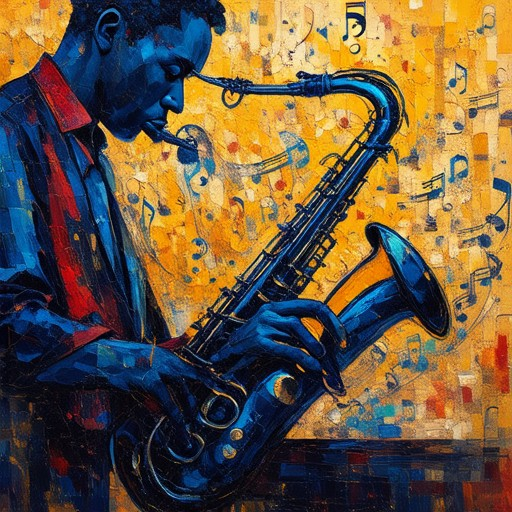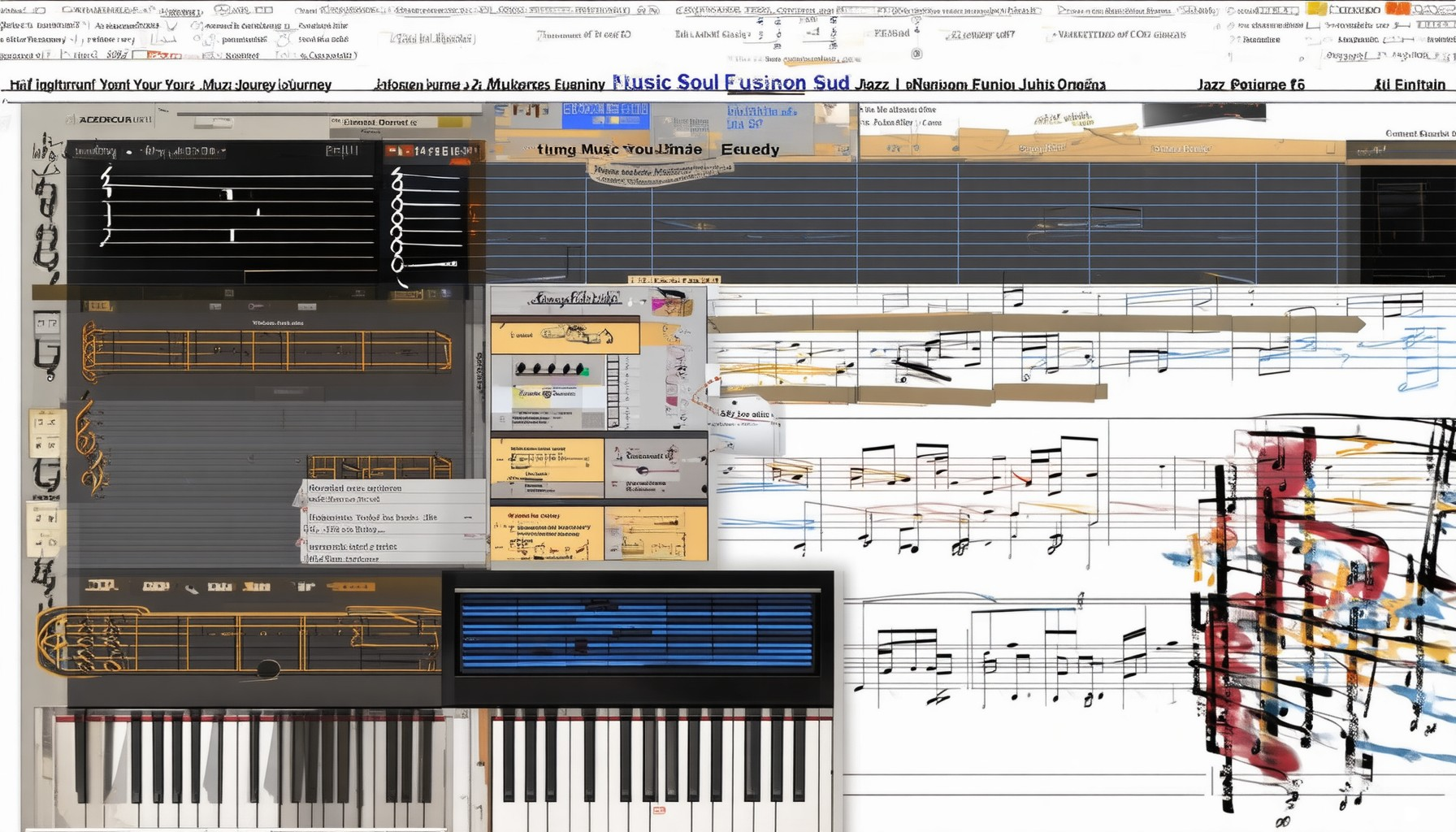Are you passionate about exploring the intricate harmonies of soul and jazz fusion? Have you ever wondered how to master chord progressions or improvisation techniques in these genres? If so, then it’s time to embark on a journey that combines your love for music with the power of knowledge. Music theory isn’t just for classical composers—it plays a vital role in understanding and creating soulful jazz fusion pieces. Whether you’re a seasoned musician or a curious learner, diving into soul and jazz fusion music theory courses online can unlock new dimensions in your creative process.

Do you need music theory for jazz?
To effectively play and understand jazz, a solid foundation in music theory is essential but not necessarily required for everyone. However, it significantly enhances your ability to improvise, analyze compositions, and appreciate the complexity of jazz.
- Understanding Scales and Chords : Jazz is built on the understanding of scales, chord progressions, and harmonies. While you don’t need formal theory to play jazz, knowing these basics helps in navigating melodies and harmonies during improvisation.
- Harmony and Melody : Jazz often uses complex harmonies and intricate melodies. A grasp of musical theory allows you to recognize patterns and construct your own melodies and harmonies.
- Improvisation Skills : While not a strict requirement, theoretical knowledge provides a framework for improvisation. Knowing scales, chords, and their relationships helps in creating spontaneous solos and rhythms.
- Reading Music : Whether you’re playing from sheet music or lead sheets, understanding notation and conventions used in jazz helps in performing accurately.
However, many jazz musicians develop their skills through constant listening, practice, and study rather than formal theory instruction. The most important aspect is passion, dedication, and a willingness to learn from great players and their recordings.
Can You Do Music Theory Online?
Yes, Tiger Funk offers comprehensive resources and tools for musicians to study and master music theory online. Whether you’re looking to prepare for exams or simply enhance your understanding of music theory, Tiger Funk provides a wealth of valuable information and exercises to support your learning journey.
Steps to Start Your Music Theory Journey
- Book Your Exam :
Tiger Funk allows you to book your exam at any convenient time within 28 days of registration. After booking, you’ll receive an exam link in your account within three hours, enabling you to take the test from any suitable location with access to a laptop or computer, along with a webcam and internet connection. - Prepare Thoroughly :
Utilize Tiger Funk’s extensive library of articles, videos, and interactive tools to thoroughly prepare for your exam. Their resources cover a wide range of topics, from fundamental music theory concepts to advanced techniques, ensuring you’re well-prepared for any level of examination. - Take the Exam Online :
Once booked, access the exam via the provided link and complete it from anywhere that meets the technical requirements. Tiger Funk’s online platform ensures a secure and reliable testing environment.
Benefits of Online Music Theory Exams
- Convenience : Take the exam at your own pace and from the comfort of your home or any preferred location.
- Flexibility : Choose a date that suits your schedule within the 28-day window, offering greater control over your learning process.
- Immediate Feedback : Upon completion, receive immediate feedback on your performance to identify strengths and areas for improvement.
Tiger Funk is committed to helping musicians excel in music theory, providing the tools and resources needed to succeed. Explore their platform today to discover how you can enhance your theoretical knowledge and skills through online learning.

The Three Fundamentals of Jazz
Jazz is a genre of music characterized by three primary fundamentals: melody , rhythm , and harmony . These elements work together to create the unique and dynamic sound that defines jazz.
- Melody : The central theme or main musical line that is played or sung. In jazz, the melody often serves as the foundation for improvisation and can vary greatly in style and complexity.
- Rhythm : The heartbeat of the music, determined by the beat, tempo, and syncopation. Jazz rhythm is known for its syncopated and swinging patterns, which give the music its distinctive feel.
- Harmony : The combination of simultaneous musical notes or chords. In jazz, harmony is often less rigidly structured than in classical music, allowing for greater improvisation and creativity.
These three elements—melody, rhythm, and harmony—are essential to the creation and performance of jazz, enabling musicians to explore a wide range of emotional and technical expressions.

What is a Music Theory Course?
A music theory course is an educational program designed to teach students the fundamental principles of music, including concepts such as melody, harmony, rhythm, composition, and notation. These courses are often structured to cater to individuals interested in understanding music from a theoretical perspective, which can be particularly useful for musicians, composers, producers, and anyone looking to deepen their appreciation for music.
Key Components of a Music Theory Course
- Melody : Understanding how melodies are constructed, including scales, intervals, and motifs.
- Harmony : Learning about chord progressions, keys, and how different voices interact in music.
- Rhythm : Exploring time signatures, tempos, and the role of percussion in creating rhythm.
- Composition : Developing skills to create original music by applying theoretical knowledge.
- Notation : Mastering musical notation systems like MIDI, sheet music, and tablature.
Benefits of Studying Music Theory
- Improved Songwriting : A solid grasp of music theory helps in constructing songs with purposeful structure and emotional impact.
- Enhanced Performance : Musicians can better understand their instrument’s role in a broader musical context.
- Deeper Musical Appreciation : Theory provides insight into why certain musical choices sound pleasing or impactful.
How to Choose the Right Music Theory Course
- Look for programs that align with your musical goals, whether it’s for personal growth, career advancement, or hobby satisfaction.
- Consider courses that offer hands-on exercises, live performances, or opportunities to collaborate with other musicians.
- Ensure the course is taught by experienced educators or professionals in the field.
By enrolling in a music theory course, you gain valuable tools that enhance your musical abilities and broaden your creative horizons. Whether you’re a seasoned musician or a curious learner, music theory offers a wealth of knowledge to explore. Learn More
Key Elements in Soul and Jazz Fusion Music Theory Courses
Soul and jazz fusion music theory courses are designed to provide a comprehensive understanding of the theoretical foundations and practical techniques required to navigate these dynamic genres. Here’s what you can expect:
- Chord Progressions and Scales : Master the essential scales and chord progressions that underpin both soul and jazz fusion music. This includes major and minor scales, diminished and augmented triads, and their applications in different contexts.
- Harmony and Melody : Explore rich harmonic structures common in soul music and more complex chordal extensions found in jazz fusion. Learn to analyze and construct harmonies that blend emotional depth with technical precision.
- Rhythmic Techniques : Develop an understanding ofgroove, timing, and polyrhythms. Study the interplay between rhythm sections and how they contribute to the overall feel and structure of a piece.
- Improvization Strategies : Gain foundational improvisation skills applicable to both genres. Learn techniques for soloing, scat singing, and playing over backing tracks with fluidity and expression.
- Composition and Songwriting : Discover methods for combining soulful melodies with complex jazz arrangements. Study how to craft emotionally resonant lyrics and structures that bridge both genres.
- Historical Context : Understand the historical development of soul and jazz fusion, including key artists, movements, and cultural influences that shaped these genres.
- Practical Exercises and Projects : Engage in hands-on exercises, such as transcribing solos, arranging original pieces, and collaborating with other musicians to create fusion tracks.
- Collaboration and Communication : Develop teamwork and communication skills essential for working with diverse musical ensembles. Participate in group projects and workshops to simulate real-world performances.

Key Elements in Soul and Jazz Fusion Music Theory Courses
Soul and jazz fusion music theory courses are designed to provide a deep understanding of the harmonic, melodic, and rhythmic components that define these genres. These courses typically cover a range of topics, from fundamental theory to advanced techniques, helping students develop both their technical skills and creative expression.
- Harmony and Melody : Courses often emphasize the importance of harmony in soul and jazz fusion, focusing on chord structures, scales, and intervals. Students learn to construct melodies that resonate emotionally, a hallmark of soul music, while exploring complex harmonies common in jazz fusion.
- Rhythm and Timing : Understanding the pulse and groove is critical. Students study how to create and maintain a solid rhythm section, essential for both soul’s laid-back grooves and the intricate timings found in jazz fusion.
- Improvisation Techniques : A significant component of these courses is the development of improvisational skills. Students learn to play licks, riffs, and solos that blend seamlessly with the band, whether leading or supporting in a performance setting.
- Songwriting and Arrangement : Courses often include lessons on composing and arranging music. Students explore how to combine soul’s emotional depth with the eclectic elements of jazz fusion, creating unique and impactful tracks.
- Historical Context : Understanding the origins and evolution of soul and jazz fusion helps students appreciate the cultural and artistic influences that shape these genres. Courses may cover the contributions of artists like James Brown, Miles Davis, and Herbie Hancock.
- Practical Exercises and Projects : To apply theoretical knowledge, students engage in hands-on exercises such as transcribing solos, arranging original pieces, and recording sessions. This encourages the integration of theory with practical performance.
- Community Engagement : Many courses foster connections with the broader music community through forums, workshops, and networking opportunities. This helps students gain insights and support from experienced musicians and educators.
In summary, soul and jazz fusion music theory courses offer a holistic approach to learning these dynamic genres. By combining theoretical knowledge with practical skills, students not only deepen their understanding but also develop the ability to contribute creatively to the ever-evolving landscape of music.





0 Comments